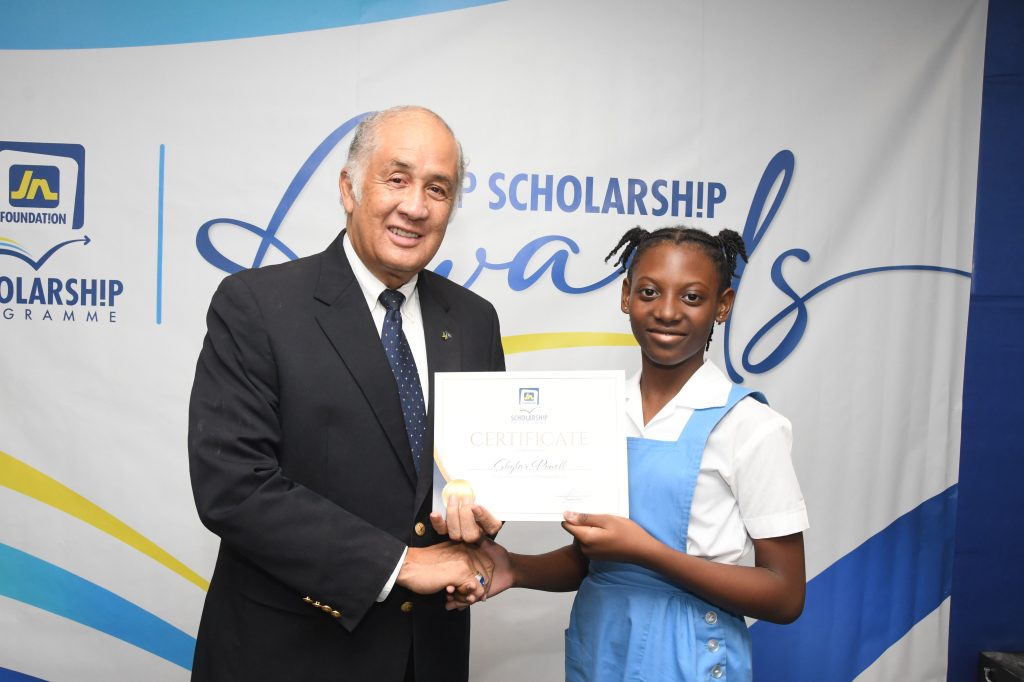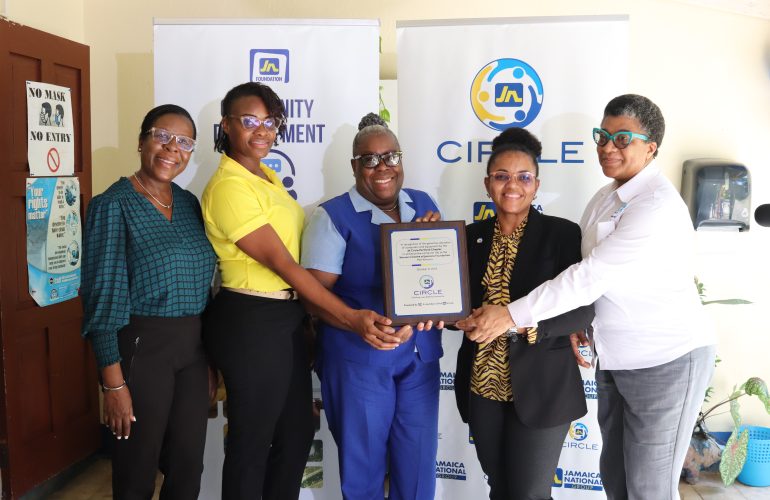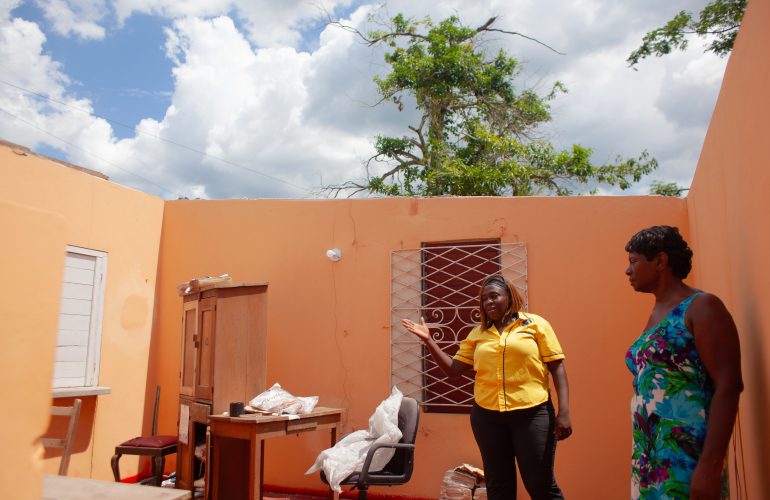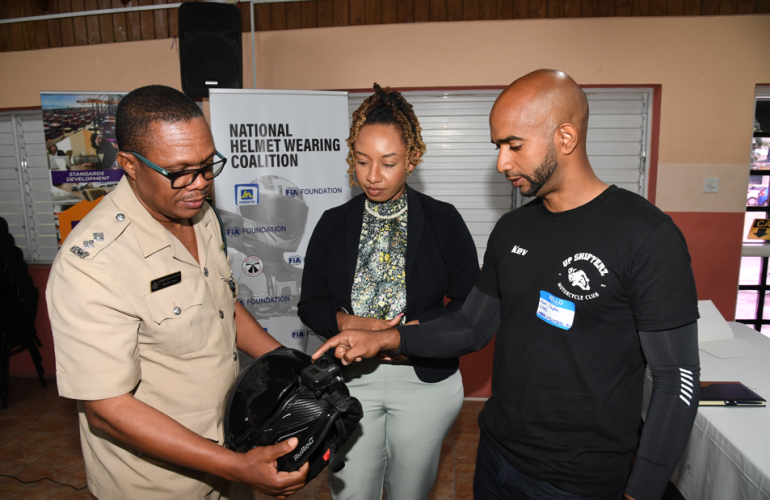Maths Enthusiast is JN Foundation Scholar for Hanover
Photo Caption: JN Foundation Scholar for Hanover, Abrielle Anderson, accepts her JN Scholar certificate from Dwayne Russell, general manager, MC Systems, at the JN Foundation PEP Scholarship Awards Reception held at the Jamaica Pegasus Hotel recently.
For many students, mathematics can be an intimidating subject, but not for Abrielle Anderson, a first- form student at Mannings School, who gets a thrill from problem-solving.
Maths became her favourite subject in grade five at Kendal Primary School in Hanover, thanks to her inspiring maths teacher, Paula McKenzie, who made the subject engaging and exciting. This love for maths led her to excel. It was her highest score in her Primary Exit Profile (PEP) results.
“She taught really well, and I understood it more. She would explain the parts you did not understand. She would break it down so you could understand more. I find it really fun to solve equations,” she related.
Her outstanding performance in the PEP led to her selection as the JN Foundation Scholar for Hanover and being awarded a five-year scholarship. She was among 37 scholarship recipients who were recognised for their achievement at the JN Foundation PEP Scholarship Awards Reception held at the Jamaica Pegasus Hotel recently. Of the 37 recipients, 14 are parish scholars; three, JN Bank Easi-Save County scholars; and 20 are children of JN Group employees who were awarded the Building Excellence and Achieving More Success (BEAMS) scholarship. One-time grants were also presented at the event to 10 students by JN Money Services.

“I’m really happy, I’m really proud of myself to get that achievement,” said Abrielle, adding that she intends to do her best to focus, settle down and study more often to retain the scholarship.
She disclosed that while she still likes maths, integrated science has now become her favourite subject in high school, as she wants to pursue a career as a scientist.
“I would be changing the world through something I like,” she said, likening the experience to scientists who developed the vaccine to treat COVID-19.
Abrielle acknowledged the strong support from her family, including her mother, father, aunt and cousins, who helped her to prepare for the PEP.
Her parents, Taneisha Donaldson Anderson and Shaun Anderson, were elated upon getting the news of the scholarship award. What makes Mrs Donaldson-Anderson even more proud is that Abrielle is the top applicant for the parish.
“I am a JN member so I saw them advertising [the scholarship] so I just casually applied but I did not know that it would turn out that she would be overall champion for Hanover. I knew that she had gotten it for Hanover Western because she was recognised as the overall top PEP performer, top performer in Social Studies and Ability [in the constituency] and got a book grant and trophies from the Member of Parliament, Tamika Davis,” said Mrs Donaldson-Anderson, a secondary school teacher.
“She has always been an outstanding student since kindergarten. She always maintained first place in all her classes. She is pretty much self-motivated. She knows what she has to do, and she does it. She seems to have a natural ability to do well because she has always performed at the highest standards.”
Mrs Donaldson Anderson commended the school for their dedicated efforts in preparing students for the PEP exam.
“They really did a lot to prepare them. They had Saturday and evening classes. I credit them for the preparation that they gave to the students. It was sufficient to produce this result.”
Abrielle’s father, a firefighter, described his daughter as being enthusiastic about learning and who expresses herself well.
“She is humble, loving and caring, and has a close bond with her brother. I’m proud of her and I see her doing great things in the future if she continues on that path.”
He reasoned that though his daughter has her career goal of being a scientist, she would do well as a teacher as she makes complex matters easy to understand.
An all-rounder at her alma mater, Abrielle served as head girl, prefect, peer counsellor and was a member of the Girl Guides Club. She also represented her school in netball, 4-H and Jamaica Cultural Development Commission competitions.
For students who are now preparing for PEP, Abrielle provides sound advice.
“Put God first in everything because we cannot do everything by ourselves. Pay more attention, and look over notes so you have a better chance of doing well.”
Since the inception of the JN Scholarship Programme in 1983, hundreds of students have benefitted from financial assistance to pursue their secondary education.




















